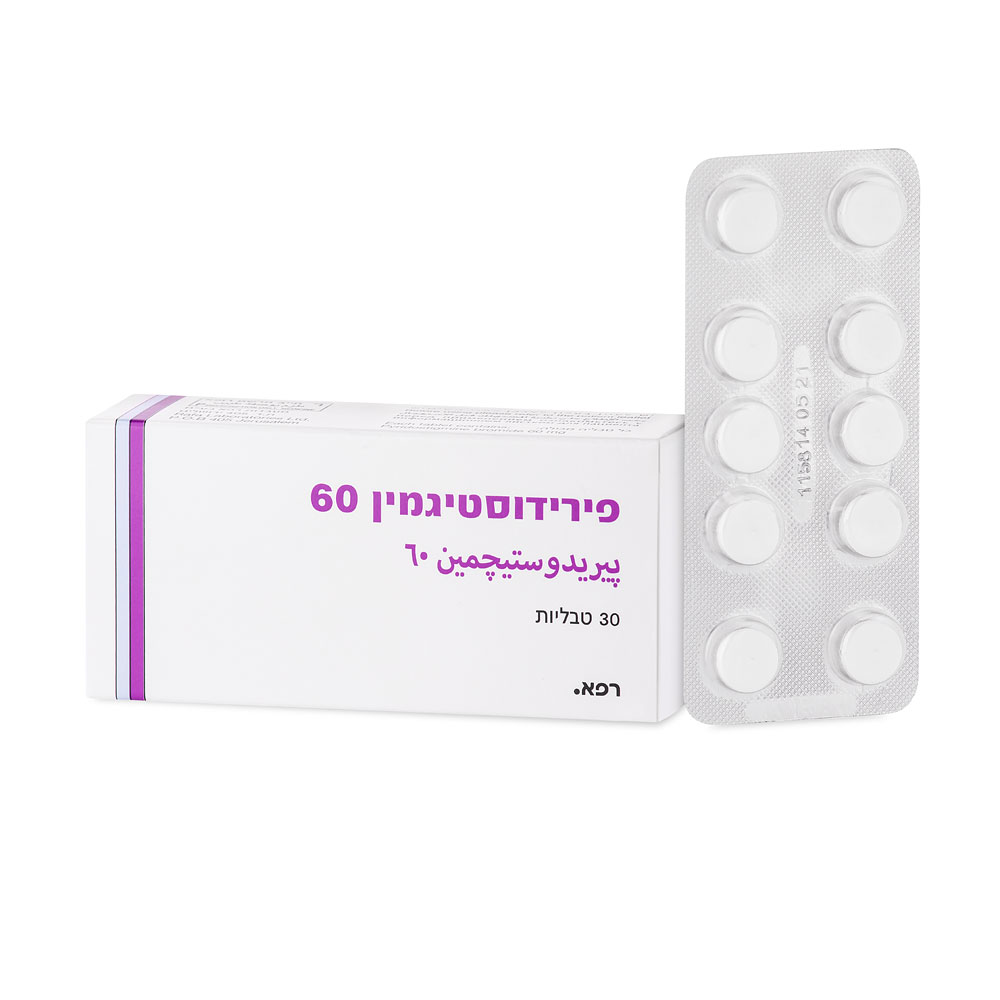Quest for the right Drug

פירידוסטיגמין 60 PYRIDOSTIGMINE 60 (PYRIDOSTIGMINE BROMIDE)
תרופה במרשם
תרופה בסל
נרקוטיקה
ציטוטוקסיקה
צורת מתן:
פומי : PER OS
צורת מינון:
טבליה : TABLETS
עלון לרופא
מינוניםPosology התוויות
Indications תופעות לוואי
Adverse reactions התוויות נגד
Contraindications אינטראקציות
Interactions מינון יתר
Overdose הריון/הנקה
Pregnancy & Lactation אוכלוסיות מיוחדות
Special populations תכונות פרמקולוגיות
Pharmacological properties מידע רוקחי
Pharmaceutical particulars אזהרת שימוש
Special Warning עלון לרופא
Physicians Leaflet
Special Warning : אזהרת שימוש
4.4 Special warnings and precautions for use Pyridostigmine is to be used with particular caution in: -Patients with obstructive respiratory illnesses such as bronchial asthma and chronic obstructive pulmonary disease (COPD). Pyridostigmine is to be used with caution in: - Patients with arrhythmias such as bradycardia and atrioventricular block (AV block). Arrhythmias tend to be more common in older patients than young adults. - Myocardial infarction, decompensated heart failure - Hypotension - Vagotonia - Peptic ulcer - Patients who have undergone gastrointestinal surgery - Epilepsy - Parkinson’s disease - An over active thyroid gland - Renal function disorders (see section 4.2) With these diseases, the increased risk must be carefully weighed up against the benefits of treatment. Very high doses of pyridostigmine bromide can require the administration of atropine or other anticholinergics to specifically counteract the muscarinic effect without impairing the nicotinergic effect. An overdose of pyridostigmine bromide can cause a cholinergic crisis. This must be differentiated from the myasthenic crisis which can occur due to a worsening of the disease. Both cholinergic and myasthenic crises can manifest as pronounced or increased muscle weakness. In a myasthenic crisis, intensified treatment with a cholinesterase inhibitor (e.g. pyridostigmine) may be necessary. In a cholinergic crisis, the treatment with pyridostigmine bromide must be immediately discontinued and appropriate supportive measures, including artificial respiration, must be initiated (see section 4.9). The active substance is mainly excreted unchanged by the kidney and should therefore be used with caution in cases of renal insufficiency. Patients with kidney disease may need lower doses (see section 4.2). Patients with rare hereditary problems of galactose intolerance, total lactase deficiency or glucose-galactose malabsorption should not take Pyridostigmine.
Effects on Driving
4.7 Effects on ability to drive and use machines Taking pyridostigmine may lead to accommodation disorders or contraction of the pupils and impair the ability to drive. If the underlying disease is not adequately treated or if there are cholinergic effects after a relative overdose of pyridostigmine, the ability to actively participate in road traffic or to use machines can be impaired.

שימוש לפי פנקס קופ''ח כללית 1994
Myasthenia gravis
תאריך הכללה מקורי בסל
01/01/1995
הגבלות
תרופה שאושרה לשימוש כללי בקופ'ח
מידע נוסף
